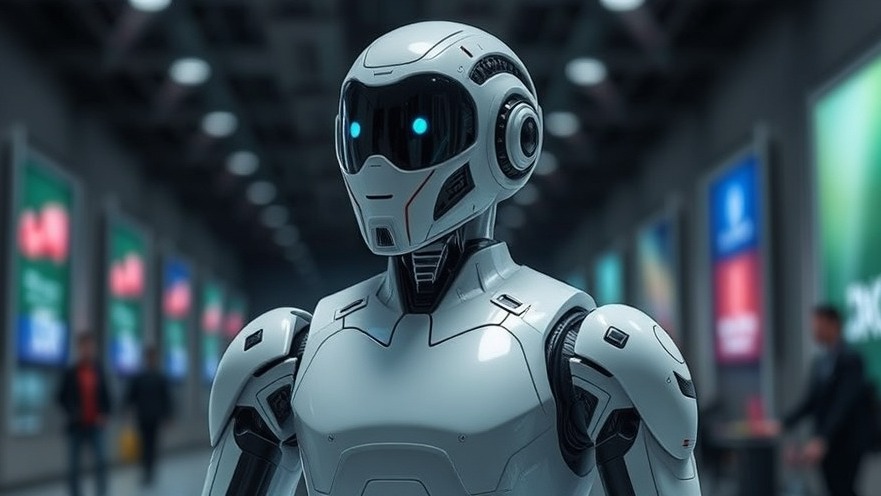
Exploring Manus: The New Frontier in AI Technology
The introduction of Manus, billed as the world's first fully autonomous AI agent, marks a significant moment in the landscape of artificial intelligence. Developed by Chinese researchers, Manus is designed to not just assist but to independently initiate and complete complex real-world tasks without explicit human inputs. This capability places it on a different playing field compared to existing AI models such as OpenAI's ChatGPT and Google's Gemini, which rely heavily on user commands to operate.
How Manus Operates: Beyond Traditional AI
Unlike traditional AI agents, Manus embodies an advanced model that acts like an executive managing multiple specialized sub-agents, allowing it to handle intricate, multi-step workflows. Early demonstrations reveal its ability to autonomously browse the internet, analyze diverse factors like crime rates or market trends for real estate searches, and compile detailed recommendations for users. This asynchronous operation allows Manus to function efficiently in the background, notifying users only when results are available, which minimizes the need for constant supervision.
A Leap in AI Development: Implications for the Future
The unveiling of Manus signifies a notable leap in AI development, challenging narratives that the U.S. is the uncontested leader in this domain. The operational independence granted to Manus raises intriguing questions about the future of work. As a fully autonomous AI, it has the potential to replace certain human jobs entirely, especially those involving repetitive tasks like data analysis, recruitment, and even basic coding.
The Buzz Around Manus: Public Reception and Concerns
The excitement surrounding Manus is palpable, with its release drawing parallels to significant AI breakthroughs in 2025—most notably, the launch of DeepSeek. However, with great power comes great responsibility. The operational autonomy of Manus invites ethical considerations, particularly regarding job displacement and accountability. Regulators worldwide currently lack frameworks to manage autonomous AI correctly. If Manus were to make a costly error, who would be liable—the developers, users, or the AI itself?
Industry Impact: Will Manus Change the Game?
The potential of Manus to revolutionize industries—especially those heavily reliant on data analysis and decision-making processes—cannot be understated. By conducting tasks like generating comprehensive reports or handling recruitment screenings at high speed and accuracy, Manus could not only enhance efficiency but also change the competitive landscape of AI technology.
Future Trends: What’s Next for AI Agents?
As Manus operates on an invite-only basis for now, its future accessibility and capabilities remain hot topics within the tech community. The successful launch and integration of this AI could signal a shift towards greater acceptance of autonomous agents in everyday applications, adjusting how industries deploy resources and manage workloads. The implications of Manus may herald a new era where AI acts more autonomously, requiring significant adjustments in regulatory practices and professional standards.
Concluding Thoughts: Embracing the Age of Autonomous AI
The rise of Manus signifies an emerging trend that could reshape various sectors, hinting at a future where AI agents play a central role in operations. As we brace ourselves for this transformation, stakeholders, developers, and regulators alike must proactively address the ethical challenges and ramifications that accompany such advancements.
As we witness the dawn of this new era in AI, consider how these advancements could affect your life or career. Should we embrace these changes, or be cautious of the potential consequences?
 Add Row
Add Row  Add
Add 




 Add Row
Add Row  Add
Add 

Write A Comment